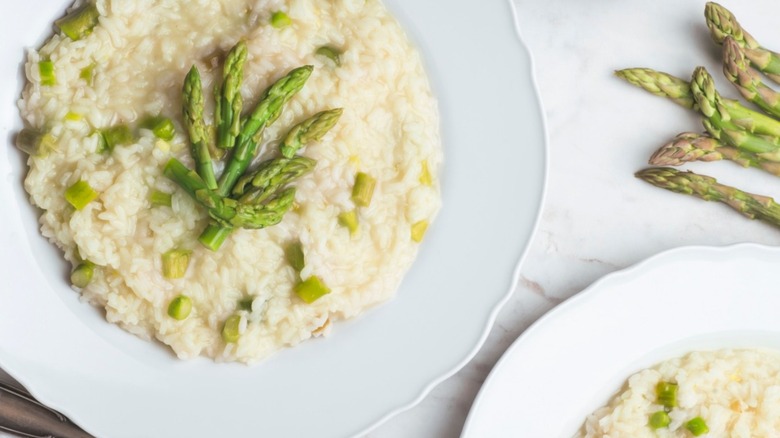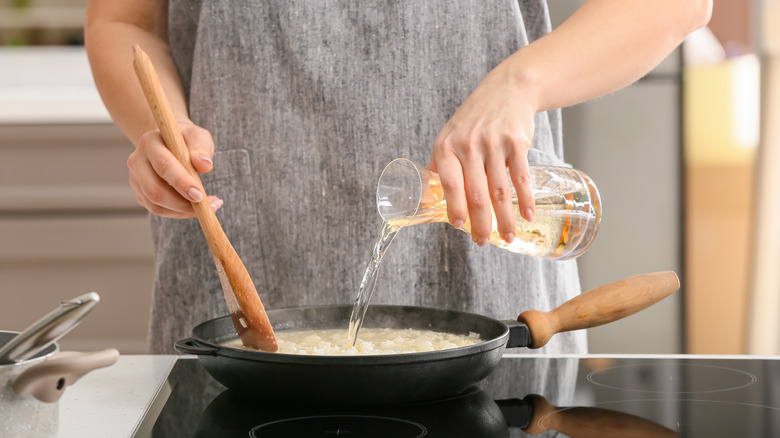Do You Really Need To Constantly Stir Risotto?
A nice thick steaming risotto is the perfect complement for any meal worth its weight in clean plates, and some risotto recipes can even serve as an entire flavorful meal themselves. Unfortunately, risotto can also be a headache and a forearm-ache in the kitchen, but maybe it doesn't have to be.
Risotto recipes, especially ones spouted at you by your stressed-out family member in the kitchen before a big dinner, always seem to involve lots of standing, lots of waiting, and lots and lots of stirring — as if stirring an empty pot with a wooden spoon for long enough would just make risotto spontaneously create itself out of thin air. A bit of the reason for this instruction might be to get you out of the way for a while (especially if you're a bit of a nuisance in the kitchen), but there is a good reason for it.
According to Kitchn, the starch released by the rice grains rubbing against each other is what contributes to the risotto's creamy texture. Stirring the risotto helps the flavors meld consistently and activates the starch so that the risotto comes out consistent and not lumpy or burnt at the bottom. Non-stirred risottos come out closer to a pilaf or a casserole and may taste a little chunkier and a whole lot more inconsistent than you may want.
Don't stir the risotto pot (too much)
Stirring a risotto is the best way to get that signature creaminess, but according to Bon Appétit, over-stirring can also incorporate too much air and too much friction into the risotto, resulting in too much starch activation and a gluey consistency. Generally, the consistency of wet cement is not what you want in your risottos, so make sure you take breaks in between stirring your risotto and see if you can be a little more of a nuisance in the kitchen.
In an interview with Food & Wine, Antonio Salvatore, head chef of Rampoldi Monte Carlo (a Michelin-starred restaurant on the rise), advises, "It's much better to stir [risotto] once every 30 seconds and trust the cooking process to do its thing." Less is more, but too little is too late, and too much means cement ... so it's best to listen to the Michelin-starred chef and stir in moderation for the creamiest of risottos.

